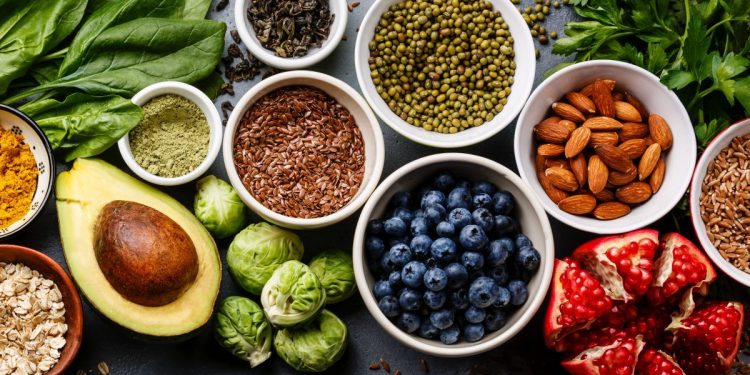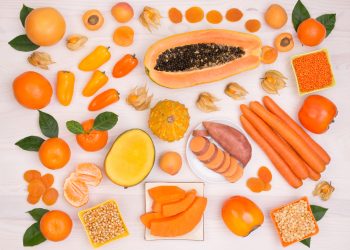If you’ve kept up with health trends in the modern era, you’ll probably be familiar with the ever-present popularity of plant-based superfoods.
Blueberries…hemp seeds…acai berry…the list goes on.
When it comes to foods that possess truly super nutrition, however, look no further than organ meats. Organ meats are traditional superfoods, and they’ve been underrated for long enough!
- The silly history of ‘superfoods’
- Are fruits and veggies superfoods?
- What makes a food super
- The awesomeness of organ meats
- 5 benefits of organ meats
- Healthier skin
- Boosted fertility
- Increased energy
- Better mood
- Keto-friendly
The silly history of ‘superfoods’
What are superfoods?
According to Miriam Webster, the official definition goes something like this:
“A food (such as salmon, broccoli, or blueberries) that is rich in compounds (such as antioxidants, fiber, or fatty acids) considered beneficial to a person’s health.” [1]
The term superfood first came onto the scene nearly a hundred years ago. In 1917 the United Fruit company made good use of it in hyping up the nutritional profile of bananas. According to the Company, bananas were an easy-to-digest superfood that came with self-storage built in (you know, in the form of their peel). [2]
Things got even more silly in 1949, when one Canadian paper applied the term ‘superfood’ to muffins. [3] Marketers began to learn that selling whatever particular food or food extract they wanted to sell was as simple as rebranding it as a superfood.
Even governing bodies got behind the trend — in 1999 the USDA boosted the sale of blueberries by calling them “powerful superfood antioxidants.” [4] Since 2000, everything from ginger to kale to sea vegetables have enjoyed the benefits of being labeled as superfoods. [5]
People typically purchase and ingest these types of foods in hopes of fighting off aging, quenching inflammation, or boosting athletic performance.
Are fruits and veggies superfoods?
But are fruits and vegetables really true, science-backed superfoods?
Not when you stop to consider how much of their nutrient content actually gets absorbed. In almost all cases, the bioavailability of nutrients in plant products is only a fraction of the bioavailability in animal products. (One exception might be the bioavailability of plant-based, water-soluble nutrients like vitamin C). [6]
As MD Paul Saladino says, it’s almost like plants have a different operating system than us humans — and trying to put windows-based programs onto a MacBook just doesn’t work. [7]
Animal superfoods, on the other hand, possess their nutrients in a highly bioavailable, highly bio-identical format.
What makes a food super?
Superfoods need to contain two classes of nutrients to really deserve their title: macronutrients and micronutrients.
Macronutrients
Macronutrients are a type of nutrient that provides energy, which comes in the form of calories. Proteins, lipids, and carbohydrates are the three major types of macronutrients.
The human body is designed to run off of these macronutrients while using micronutrients as cofactors and catalysts for the energy creation process. Think of macronutrients as the gas in a car — and micronutrients as the engine oil and coolant. [8]
One of our favourite superfoods, beef liver, contains tons of micronutrients and all three major macronutrients.
Micronutrients
Micronutrients are a type of nutrient that provides metabolic benefits without contributing any calories. The most important micronutrients are vitamins, minerals, antioxidants, and enzymes. These micro’s assist with the process of energy generation without providing any energy themselves. [9]
Micronutrients are essential for:
- Neurological health
- Bone strength
- Eye health
- Gut health
- Immunity
- Fertility
- Sleep
…and much, much more!
As we mentioned earlier, most micronutrients do best when they come within the context of animal food products. Look no further than vitamin A for a perfect example of this.
You can get vitamin A from carrots (via carotenoids), but a far better form of vitamin A (preformed vit. A) can be found in animal foods like beef liver. [10]
The awesomeness of organ meats
Speaking of beef liver, virtually every organ meat we can think of can rightly be considered a superfood.
- Heart is a superfood that’s unusually high in coenzyme Q10
- Kidney is a superfood that’s super high in B vitamins and selenium
- Liver is a superfood that’s nature’s greatest source of B vitamins and vitamin A
And don’t forget that organ meats feature their nutrients in a highly bioavailable format. Traditional cultures viewed them as sacred foods — which sounds pretty similar to superfoods to us.
Indeed, many nutritionists now regard beef liver as nature’s true superfood. It’s rich in vitamins, minerals, enzymes, peptides, and cofactors your body needs to be fully efficient and alive. Top highlights include folate, pantothenic acid, niacin, thiamin, riboflavin, vitamin B12, heme iron, and vitamin A. [11]
5 benefits of organ meats
As great as beef liver is, we don’t want to neglect the impressive nutrient profile of other organ meats. Let’s zoom out a little bit and look at five health benefits that nearly all organ meats have to offer.
- Healthier skin
- Boosted fertility
- Increased energy
- Better mood
- Keto-friendly
Healthier skin
Most beef organ meats are rich in vitamins A, C, and E — making them truly super for your skin. Some organ meats are also high in biotin, a B vitamin that plays vital roles in the regeneration of healthy nails and skin. [12] Finally, organ meats that contain coenzyme Q10 may also have anti-aging skincare benefits. [13]
Boosted fertility
When it comes to boosting fertility the natural way, organ meats are an awesome ally. Many of them contain enough folate and vitamin A to support the growing fetus. [14] There’s a reason traditional cultures went to any length to supply their pregnant and nursing women with beef organs! [15]
While modern women often turn to folate-rich prenatal vitamins, the folate present in organ meats is easier for your body to assimilate than more processed versions. [16]
Increased energy
The energy-boosting properties of organ meats have been known for centuries.
In 1905 strongman and athlete-extraordinaire Arthur Saxon set a new record in a feat of strength called the “two hands anyhow,” lifting a whopping 448 pounds overhead. Why’s this relevant? Saxon was known to drink a beef organ extract called Bovril in preparation for his lifts. Even with their steroids and hormones, today’s athletes haven’t even come close to matching Saxon. [17]
Endurance athletes can benefit from the nutrients in beef organs, too. Experiments from as early as 1950 showed that rodents who were given beef liver extract swam far longer than rodents who went without. [18] These early studies concluded that liver’s B vitamins and yet-to-be-identified “anti-fatigue factors” were to thank for the extract’s performance boost.
Last but not least, organ meats also contain rare enzymes that may protect your own organs from the downsides of overtraining syndrome. [19]
Better mood
Once organ meats have you looking better and feeling more energetic, don’t be surprised if something else happens: mood improvements. Many people who take organ meats for the first time report feeling a happy, contented afterglow afterward. A brain on organ meats is a happy brain!
Another benefit? Science has shown that the B vitamins present in organ meats have neurotropic qualities that might make it easier for you to learn and comprehend new things. [20]
Keto-friendly?
This last benefit is more of a practical one. Virtually every single organ meat in existence is low enough in carbs that it can be added ad libitum to a low-carb keto diet.
While beef liver contains more carbs than most animal products, even it is perfectly compatible with keto. Beef organs are also rich enough in protein to keep you nice and satiated as you adjust to the keto diet. [21]
Summing things up
They may not be as popular as acai bowls or multicoloured smoothies, but organ meats are superfoods that offer truly superb health and wellness benefits. They’re good for your skin, your fertility, your energy levels, your mood, and more.
As if all that wasn’t enough, the lack of marketing hype surrounding organ meats means they’re also quite inexpensive. If you haven’t already, discover what organ meats are all about for yourself!








